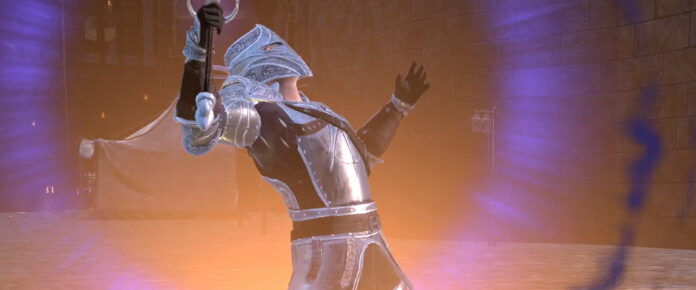
While I would argue that Lord of the Rings Online has grown in a remarkably cohesive way since its launch, what we have here in 2024 is quite different than the MMO that players logged into back in 2007. While we can see many parts and aspects of the game that remain from those early months, plenty else has changed in the past 17 years.
I thought it might be interesting — and even educational — to catalogue some of the biggest changes to LOTRO over nearly two decades of live operation. Here are 10 ways that our favorite MMO was vastly different back in April 2007.
Housing and wardrobe weren’t in yet
It’s strange to picture LOTRO without housing or its cosmetic wardrobe, but that was the reality in those first few months. Two of LOTRO’s key non-combat systems didn’t debut until later in the game’s first year of operation. Housing arrived in October 2007 with the core four housing neighborhoods, and cosmetic outfits were added in February 2008 with Book 12.
Skills had to be purchased
These days, you automatically get a new skill on your hotbar when you hit certain levels or add a new racial or trait tree tier. But those mostly useless class trainer NPCs had a much more important purpose back in the day, as you’d have to visit them every so often to buy your latest abilities.
Trait lines were core to character growth
While the old class trait system persisted for many years, it was eventually replaced by the current trait trees with Helm’s Deep. But back then, you could mix-and-match your special class-defining abilities much the same way you can currently slot racials.
There were no map waypoints
Hope you were really good at reading the quest text and figuring things out for yourself, because LOTRO held nobody’s hand at the start. The map did not yet have waypoint and objective markers, meaning that you had to try to find your objectives without that extra visual assist.
And speaking of maps, hope you like bumbling about in the Old Forest without any guidance because you had no pity from the maps of the day.
Getting a horse was a pain in the rump
We are absolutely spoiled with mounted travel these days, with access to the riding skill and a horse in the first hour of the game. But in 2007, mounts took a while to get. You’d have to hit level 35, go through a questline, and pay out a chunk of gold before you had the privilege of faster travel.
And if you’re thinking, “Well, at least they had stable masters!” then brace for another shock. LOTRO had fewer stable waypoints in those older zones than we have today, and most all of the “swift travel” options were gated behind reputation grinds. Simply put, getting places in this game took time.
You had to click for loot like a scavenging animal
Speaking of being spoiled, having LOTRO automatically dump loot into your bag bypassed a routine activity that we all had at launch: clicking on defeated creatures for their goodies. Kill that enemy from afar and can’t reach its body? So sorry, Charlie, that loot is gone.
Some content mandated groups
It’s not merely your imagination: LOTRO’s landscape was far tougher in 2007. Not only were some quests and parts of the epic book impossible to complete without a group, but portions of certain zones were populated with elite monsters that would squash a solo traveler.
Forget free-to-play
Like most all of its contemporaries at the time, LOTRO strictly was a subscription-only game — unless you had shelled out money for a lifetime subscription ($199 for founders, $299 for everyone else), of course. Free-to-play didn’t enter the scene until 2010.
Classes and races were far more limited
Today we have a buffet of class and racial choices, but back in 2007, LOTRO wasn’t anywhere near to where we are today. Forget classes like the Rune-keeper, Warden, Beorning, Brawler, and Mariner — they didn’t exist yet, nor did races like the Beorning, Stout-Axe Dwarf, High Elf, or River Hobbits. And many of the classes featured far more restrictive racial requirements, such as the race of Man being the only Captains in the game.
Players actually used fellowship maneuvers
Fellowship Maneuvers — or Conjunctions, as the cool kids call them — utilized an interesting group combo system to pull off powerful abilities in the middle of instances and tougher landscape content. Some classes, like Burglars, could set off FMs at will, which made them important to turning the tide of battle.
 Every two weeks, the LOTRO Legendarium goes on an adventure (horrid things, those) through the wondrous, terrifying, inspiring, and, well, legendary online world of Middle-earth. Justin has been playing LOTRO since its launch in 2007! If you have a topic for the column, send it to him at justin@massivelyop.com.
Every two weeks, the LOTRO Legendarium goes on an adventure (horrid things, those) through the wondrous, terrifying, inspiring, and, well, legendary online world of Middle-earth. Justin has been playing LOTRO since its launch in 2007! If you have a topic for the column, send it to him at justin@massivelyop.com.
















